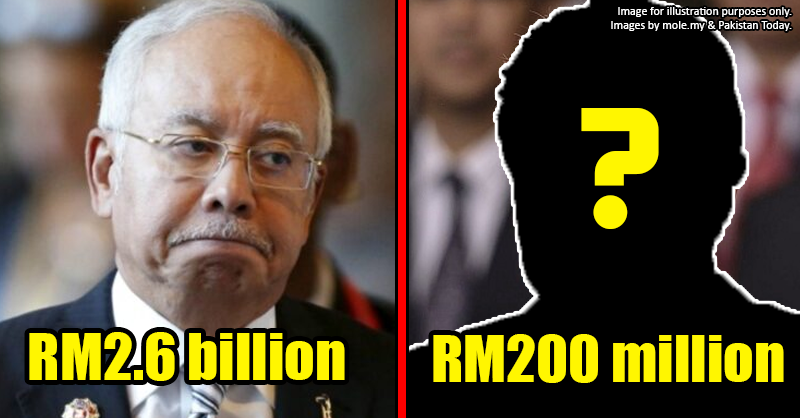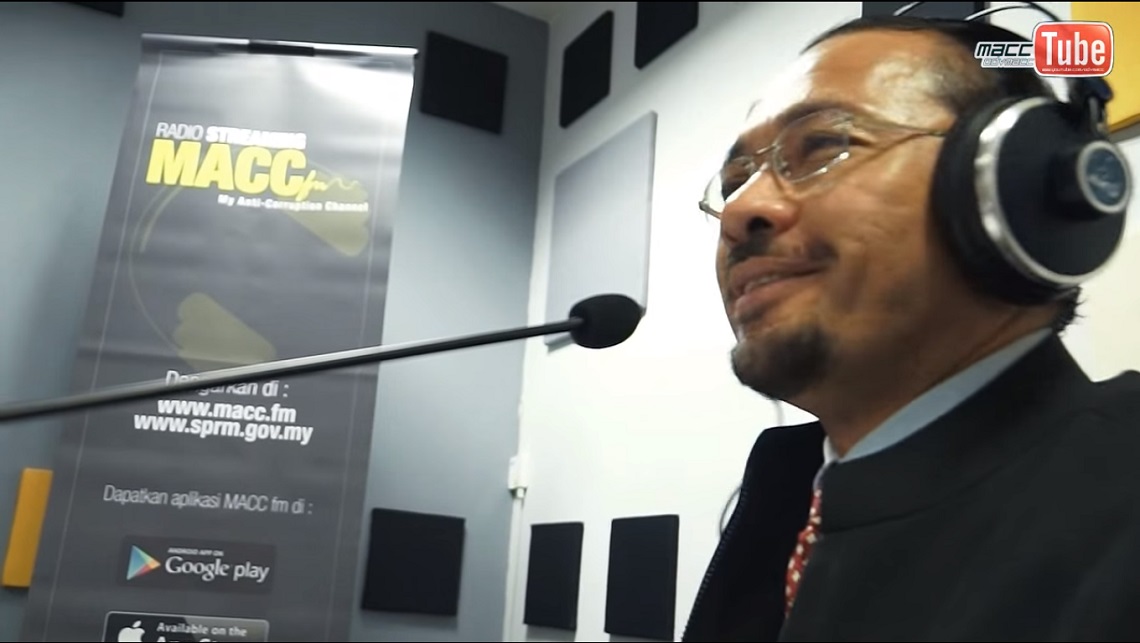4 PR mishaps by Malaysian govt departments (and how we’d fix them)
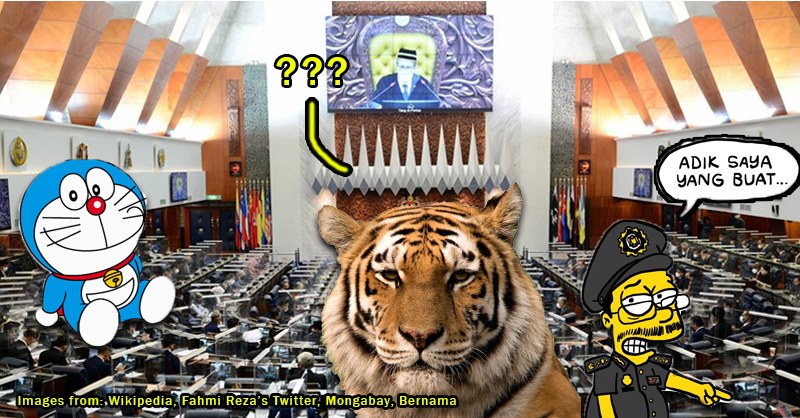
- 56Shares
- Facebook33
- Twitter6
- LinkedIn5
- Email5
- WhatsApp7
Love or hate their service, there’s no denying that our governmental departments definitely can provide a healthy dose of entertainment when you least expect it. They’ve certainly given us plenty of content to work with since our founding days, and following the drama can sometimes be more gripping than some tv shows we know.

However, there’s also no denying that sometimes, just sometimes, they say some really out-of-place, bizarre things that make you question their PR recruiting policies. It’s almost as if they’ve got a ‘wrong thing, wrong place, wrong time’ policy during critical times when often saying nothing would have been a lot better.
But well, they didn’t say nothing. And so we rounded up those not-nothings into a list of things that really shouldn’t have been said, as well as what we would have done instead.
1) Malacca state retweet on wives earning more than husbands
Fresh out of the pan is this Malacca state government retweet from yesterday (later removed). It’s of an infographic citing a 2019 study, which showed that the psychological distress of husbands are lowest when their wives are earning 40% of the household income, but peaks when their wives are the sole breadwinner.
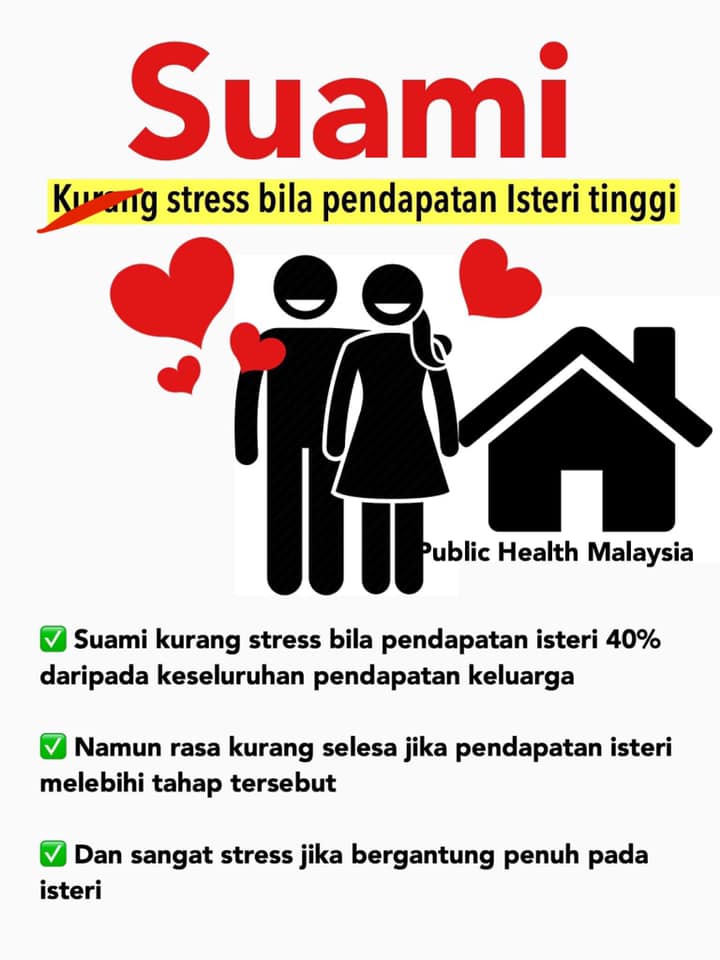
Anyway, context: this is essentially a re-post of a re-post of a 2019 image by Public Health Malaysia, a public health NGO. And tbh, this would probably have stayed under the radar if it had just been left as is. But no, it was not left as is, and the state government of Malacca retweeted it, leading to a backlash from netizens, including Segambut MP Hannah Yeoh.
I quoted Kerajaan Negeri Melaka's post. Please improve your materials to help build families. https://t.co/t0aljJ5teY pic.twitter.com/UJn5mTpzXU
— Hannah Yeoh (@hannahyeoh) February 7, 2022
However, the main issue might not have been the study itself, but rather how the post framed it. Because don’t get us wrong, we have a deep respect for peer-reviewed scientific research, so we decided to take a closer look at the actual paper in question. Aaand guess what? The study says in its ‘Implications’ section that it is the very re-enforcement of social gender norms which was the actual cause for the husbands’ psychological distress, rather than the actual earnings of their wives.
And it doesn’t really look like the post tried to challenge the very norms that were cited as the problem in the first place, hence the backlash. So if we were the Malacca state government’s Twitter mod, we would probably have modified the post slightly, or made a totally new one putting the blame on social gender norms, rather than making it seem like the wives’ fault. Because tbh, this whole controversy may have been avoided if that one small thing had been inserted.
TL;DR: science is nuanced, context is important, and simplifying things might not always be the best idea.
2) ‘Talk like Doraemon, don’t nag your husband during lock down’
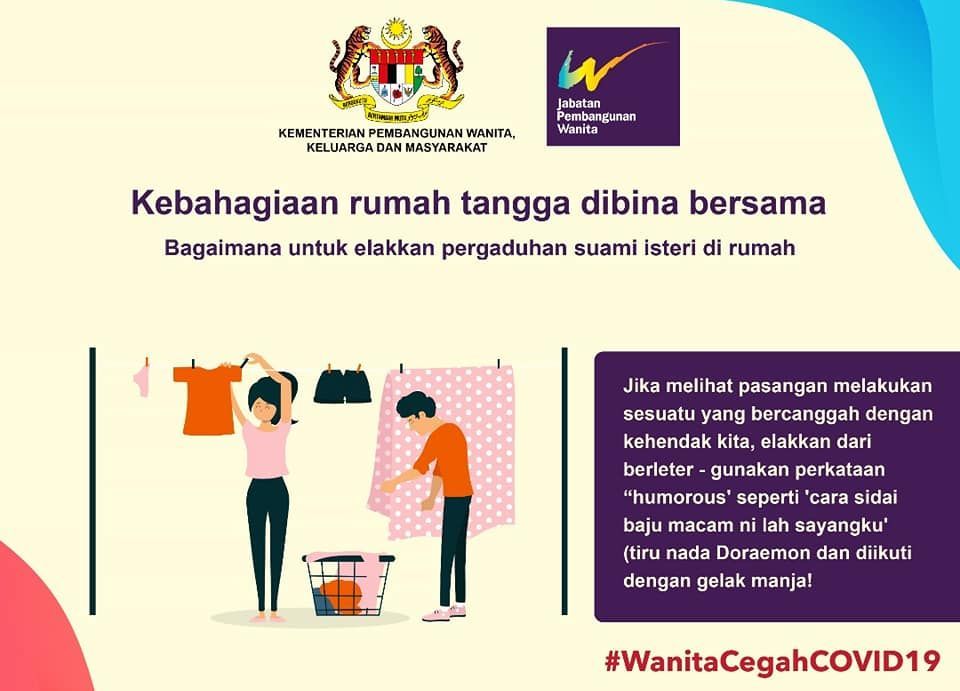
Going with the theme of the previous one, this faux pas is probably what most Malaysians think of when thinking about the Malaysian Ministry for Women, Family and Community Development nowadays.
Again, pretty self-explanatory, since it’s literally right there in text. But this series of posts essentially advised wives to (among other things like “wearing makeup” and “dressing neatly”) “avoid nagging”, and to instead use “humorous” phrases and speak in a “Doraemon voice”. Understandably, the campaign received a fair amount of backlash from netizens, forcing the ministry to later apologize.

But here’s what we would’ve suggested in our post: instead of having to explain things in a cartoony voice, why not have a date over some YouTube and snacks, where you both make an agreement to watch tutorial videos on household chores each partner is having trouble with? Sneaky way to get your unwilling partner to cooperate, but hey, at least you get to keep your dignity.
3) That one time Kelantan’s forestry dept director spoke on behalf of tigers
At a press conference, Abdul Khalim Abu Samah, director of Kelantan’s forestry department was quoted as saying:
“Based on expert research, areas that have been deforested are actually good for the tiger population.” – Abdul Khalim Abu Samah
The claim was later labeled ‘irresponsible’ by Shariffa Sabrina, president of environmental NGO Protection of the Natural Heritage of Malaysia (Peka), who also questioned the validity of Kelantan’s logging ration data.
Understandably, the tigers were not too pleased with this statement either, leading them to issue the following response:
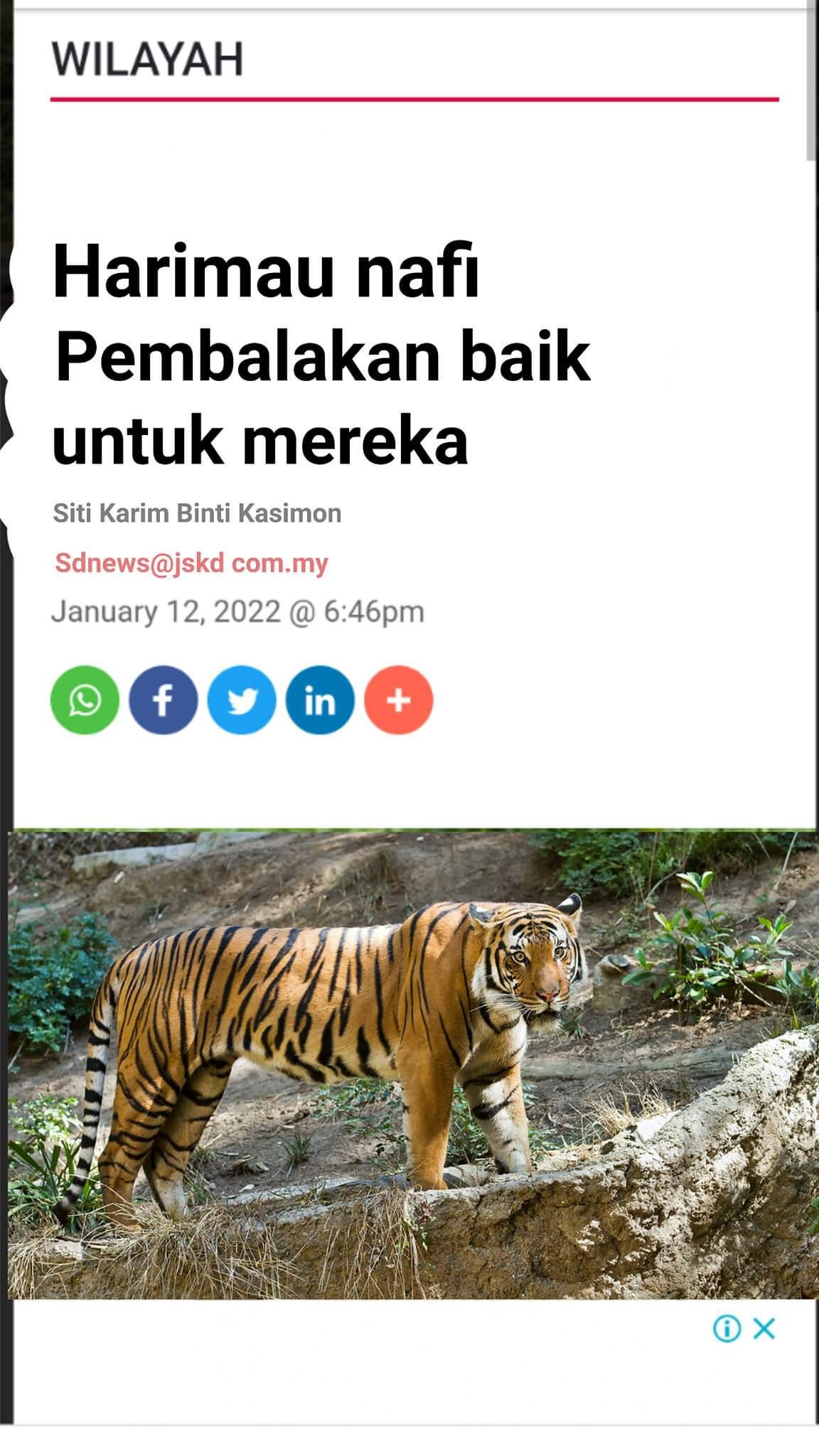
Ok, of course, that one was a joke. But like we mentioned earlier, being the wannabe scientists nerds that we are, we decided to look into the director’s claims and to try and find the ‘expert research’ he cited. And we did. The research, conducted by WWF scientists, does appear to back up his claim, with them finding that tiger population was ‘30% higher in selectively logged forests’ in their research area than the highest estimate in Taman Negara National Park, a protected forest.
However, like we said, science is nuanced. Not only did the researchers say that ‘more research was required’, WWF later issued a response saying that ‘pristine, undisturbed forests are the ideal habitat for tigers’. More importantly, they also clarified that the study was referring to ‘selective, not indiscriminate logging’, something which the Kelantan state admitted was already happening illegally. So yeah, using that research to justify logging; probably not the best idea.
Having opened themselves up to online ridicule, the best course of action would probably have been to just apologize and say they misinterpreted the data, though we couldn’t find any report of them doing so following the statement.
4) MACC defending Azam Baki
Isn’t it just funny when the person who’s supposed to prevent something, ends up getting accused of doing that something?
This was the bowl of hot soup that the Malaysian Anti-Corruption Commission (MACC) ended up in, when their Chief Commissioner Tan Sri Azam Baki was accused of conflict of interest for allegedly purchasing millions of shares in a publicly-listed company back in 2015 while on a civil servant’s salary.
Of course, people had a field day when Azam pulled out the oldest high-school survival guide excuse in the book, claiming that ‘his brother did it’.
— Fahmi Reza (@kuasasiswa) January 5, 2022
However, MACC then doubled down on the defense, throwing in their lot with Azam through a ‘Memorandum of Support to Azam Baki’, which claimed that the call-out was ‘an act of political revenge’. Now, of course, ‘innocent until proven guilty’, but backing a suspect in an ongoing investigation is really, really risky business.
For this, we’ll take a page out of the books of English Premier League football clubs, since there’s been a spate of arrests involving high-profile players and rape/abuse allegations. Generally when something like this happens, sure, ‘innocent until proven guilty’, but the SOP seems to be to suspend said player until further notice and to ‘follow developments closely’, while still condemning ‘all forms’ of the alleged crime in a public statement.

In the case of MACC, Azam Baki avoided suspension, instead being told to ‘take a leave’, but surely a neutral statement such as ‘we will continue to monitor the situation closely’ would have been a safer bet for the MACC, instead of going all-in with a possible offender. But fortunately for MACC, their leap of faith aged well, and Azam Baki was cleared of his conflict of interest charge by the Securities Commission (SC).
In PR, sometimes all it takes is one slight misstep tarnish your reputation
We live in a very cutthroat world when it comes to mistakes on the internet. Because netizens will notice, even if it’s not really your fault. Like that one time the Health Ministry’s Facebook auto-translator translated ‘air kosong’ as ’empty water’. Which, we gotta admit, was actually pretty hilarious, albeit being an ‘innocent’ mistake.
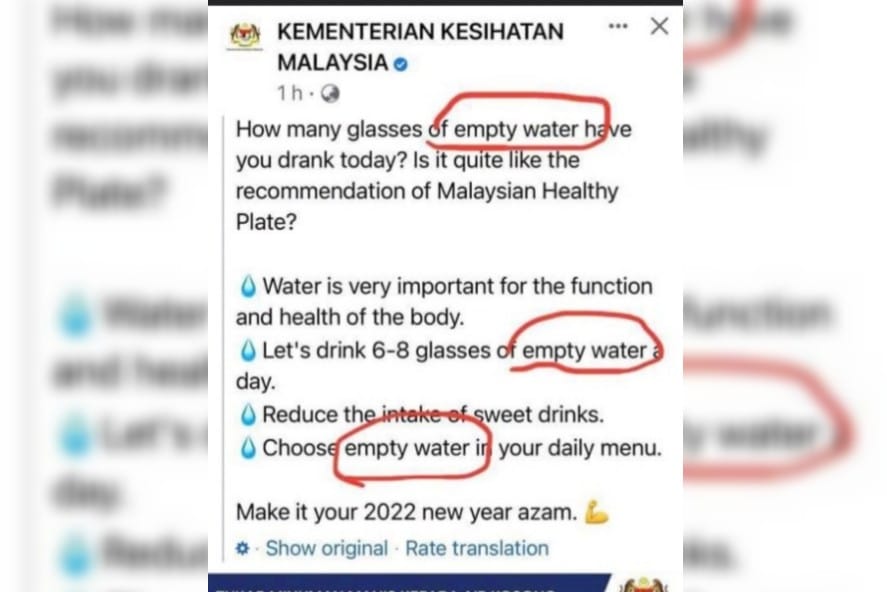
But the fact of the matter is, especially for rank-holders in government departments, you have far less room for error than the average citizen when making public statements. And being in today’s fast-paced world, not everyone will take the time to analyze something within context, so you only get one shot at sending a message.
As the saying goes, ‘with great power comes great responsibility’. Because all it takes is one tiny slip-up to go down in interwebz history and become content for a Cilisos article. Or, y’know, you could always say your brother did it.
- 56Shares
- Facebook33
- Twitter6
- LinkedIn5
- Email5
- WhatsApp7

